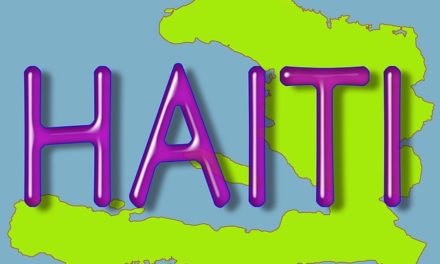Everything You Need to Know on International Extradition
Picture this: You’ve built a successful international business empire, only to find yourself caught up in the net of legal intricacies, and suddenly, the term ‘extradition’ becomes an eerie echo in your ears. You feel uncertain, perhaps even scared. What if this concept, as foreign as a sci-fi film plot, lands on your doorstep? What if you, or someone in your company, is being asked to face justice in a completely different country? We get it, the stakes are high, and the ground feels shaky beneath your feet.
That unease you’re feeling? It’s more common than you’d think. And it’s completely understandable. After all, laws change with every border crossed, and this web of international law can feel like a treacherous maze. What’s a straight-talking business mogul to do?
But hey, let’s take a deep breath together. We’re about to journey into the realm of extradition laws – debunking its complexities, and breaking it down, brick by brick. By the end of this comprehensive guide, you’ll understand what it is, how it works, and how it could impact your business. Knowledge is power, after all. So, ready to get empowered? Let’s dive in.
Introduction
Extradition has been practised for centuries and serves as a mechanism for countries to cooperate in pursuing justice. This process allows a country to request the surrender of a fugitive from another country when they have committed a crime or are wanted for prosecution or sentencing. Extradition helps maintain law and order on a global scale by facilitating the transfer of individuals.
What is Extradition?
Extradition is the legal process through which a person accused or convicted of a crime in one country is surrendered to another country for trial or punishment. It is based on the principle of reciprocity and mutual cooperation between nations to combat transnational crime effectively.
Historical Background
The origins of extradition can be traced back to ancient civilizations, where treaties and agreements were established between different city-states to hand over criminals. However, the modern concept of extradition emerged in the 19th century, driven by the need for cooperation among nations to address criminal activities more efficiently.
Principles of Extradition Laws
Extradition laws are built upon several fundamental principles that guide the process. These principles include:
Principle 1: Dual Criminality
Dual criminality refers to the requirement that the alleged crime for which extradition is sought must be considered an offense in both the requesting and the requested countries. This principle ensures that individuals are not extradited for actions that are not criminalized in the requested country.
Principle 2: Proportionality
Extradition laws emphasize proportionality, meaning that the punishment or sentence sought must be reasonable and in line with the severity of the offense committed. This principle prevents countries from seeking extradition for minor offences that do not warrant such international cooperation.
Principle 3: Non-Political Offenses
Extradition laws generally exclude the surrender of individuals for political offences. This principle aims to prevent the misuse of extradition for political persecution or suppression.
Principle 4: Human Rights Protections
Extradition laws incorporate human rights considerations to ensure that individuals are not subjected to torture, cruel treatment, or an unfair trial in the requesting country. Human rights safeguards are essential to uphold the principles of justice and prevent abuse of the extradition process.
Types of Extradition
Extradition can be classified into two main types:
1. Regular Extradition
Regular extradition involves the surrender of individuals based on formal extradition treaties or agreements between countries. These treaties establish the legal framework and conditions for extradition requests to be made and processed.
2. Ad Hoc Extradition
Ad hoc extradition refers to situations where countries without an established extradition treaty still cooperate in the extradition process on a case-by-case basis. This type of extradition relies on diplomatic negotiations and mutual understanding between the involved countries.
Extradition Process
The process of extradition generally involves several stages, which may vary depending on the legal systems and bilateral agreements between countries. Here are the typical steps involved:
Step 1: Extradition Request
The requesting country initiates the extradition process by submitting a formal request to the requested country. The request includes relevant information about the accused individual, such as their identity, the alleged offense, and the evidence supporting the request.
Step 2: Review and Evaluation
The requested country reviews the extradition request and evaluates its validity and compliance with the applicable laws and treaties. This assessment ensures that the request meets the requirements for extradition.
Step 3: Arrest and Temporary Detention
If the extradition request is deemed valid, the requested country may issue an arrest warrant for the accused individual and temporarily detain them until the extradition hearing. This step aims to prevent the fugitive from fleeing or posing a threat to society.
Step 4: Extradition Hearing
The extradition hearing is a crucial stage where the requested country evaluates the evidence presented by the requesting country and determines whether the extradition should proceed. The accused individual has the right to legal representation and the opportunity to present their defense.
Step 5: Ministerial Decision or Judicial Review
Following the extradition hearing, a decision is made either by the executive authority, such as the Minister of Justice, or through a judicial review process. This decision determines whether the accused individual should be extradited or not.
Step 6: Surrender and Transfer
If the decision favors extradition, the requested country proceeds with surrendering the accused individual to the requesting country. The logistics of the transfer are coordinated between the involved authorities, ensuring the safe and lawful transportation of the fugitive.
Extradition Treaties and Agreements
Extradition treaties and agreements are crucial in facilitating the extradition process. These bilateral or multilateral instruments establish the legal framework, conditions, and procedures for extradition between countries. They define the offenses for which extradition can be sought and establish the rights and obligations of the involved parties.
Grounds for Extradition
Extradition can be sought for various reasons, including:
- Serious offenses: Extradition is commonly sought for crimes such as murder, terrorism, drug trafficking, money laundering, and organized crime. These offenses often have severe consequences and require international cooperation for effective prosecution.
- Fugitive criminals: Extradition can be pursued when individuals flee to another country to evade justice or escape sentencing. The goal is to ensure that fugitives cannot find safe havens where they are immune from prosecution.
- International warrants: Extradition can be initiated based on international arrest warrants issued by organizations such as Interpol. These warrants aim to facilitate the apprehension and surrender of individuals wanted for international crimes.
Extradition Hearing
The extradition hearing is a crucial stage in the process, where the requested country evaluates the evidence and arguments presented by both the requesting country and the accused individual. The hearing provides an opportunity for the accused to challenge the extradition request and present any legal defenses or mitigating circumstances.
Challenges to Extradition
Extradition is not without challenges, and several factors can complicate the process. Some common challenges include:
- Political considerations: Extradition can become politically sensitive when it involves high-profile individuals or cases with significant public attention. Political factors may influence decision-making and delay or hinder extradition proceedings.
- Human rights concerns: Extradition can pose challenges when there are concerns about the human rights situation in the requesting country. The requested country must ensure that the accused will receive a fair trial and not be subjected to torture or mistreatment.
- Legal complexities: Extradition involves navigating complex legal systems, international treaties, and conflicting laws. Differences in legal standards, procedural requirements, and evidentiary rules can create challenges that require careful legal analysis and negotiation.
Extradition and Human Rights
Human rights considerations are paramount in extradition cases to safeguard individuals’ fundamental rights and prevent abuse of the process. The requested country must assess the human rights situation in the requesting country and ensure that the accused individual’s rights will be respected.
Recent Developments
Extradition laws and practices continue to evolve to meet the changing dynamics of international crime and legal systems. Recent developments include:
- Enhanced cooperation: Countries are increasingly cooperating through extradition to combat transnational crimes such as cybercrime, money laundering, and terrorism. This cooperation is reinforced by sharing intelligence, joint investigations, and improved legal frameworks.
- Human rights safeguards: Efforts are being made to strengthen human rights protections in extradition. Countries are working towards ensuring fair trials, preventing torture or mistreatment, and promoting transparency and accountability in extradition proceedings.
Extradition vs Deportation
Extradition should not be confused with deportation, as these are distinct legal processes with different objectives. Extradition involves the transfer of an individual accused or convicted of a crime to another country for trial or punishment. In contrast, deportation refers to the expulsion of individuals from a country based on immigration violations or threats to national security.
Case Studies
To illustrate the complexities of extradition, let’s examine a few notable case studies:
Case Study 1: Julian Assange
Julian Assange, the founder of WikiLeaks, faced extradition requests from multiple countries. The process involved legal battles and debates over freedom of the press, national security, and human rights. The case highlighted the challenges posed by extradition in the context of journalism and whistleblowing.
Case Study 2: Carlos Ghosn
The case of Carlos Ghosn, former CEO of Nissan, involved a high-profile extradition request from Japan to Lebanon. Ghosn fled Japan while awaiting trial for financial misconduct charges, raising questions about the effectiveness of extradition processes and the complexities of international legal cooperation.
Conclusion
Extradition laws are essential for international cooperation in the pursuit of justice. Understanding extradition’s principles, processes, and challenges is crucial for legal professionals, policymakers, and individuals involved in cross-border criminal cases. Extradition plays a vital role in maintaining global security and the rule of law by ensuring fairness, respect for human rights, and effective international cooperation.
FAQs
Can a person be extradited for political offenses?
Extradition laws generally exclude the surrender of individuals for political offenses. However, the definition of political offenses can vary between countries and legal systems. It is essential to consult the specific extradition laws and treaties between the involved countries.
Are there any human rights safeguards in the extradition process?
Yes, human rights protections are integral to extradition. The requested country must assess the human rights situation in the requesting country and ensure that the accused individual will receive a fair trial and will not be subjected to torture or mistreatment.
What happens if an extradition request is denied?
If an extradition request is denied, the requested country may refuse to surrender the accused individual. The reasons for denial can vary and may include insufficient evidence, political considerations, human rights concerns, or procedural irregularities.
Can extradition be challenged in court?
Yes, individuals facing extradition can challenge the request in court. They have the right to legal representation, present their defense, and challenge the evidence and arguments presented by the requesting country. The extradition hearing provides an opportunity for such challenges.
How long does the extradition process typically take?
The duration of the extradition process can vary significantly depending on various factors, such as the complexity of the case, the legal systems involved, the countries’ cooperation, and potential legal challenges. It can take months or even years to complete the process.






